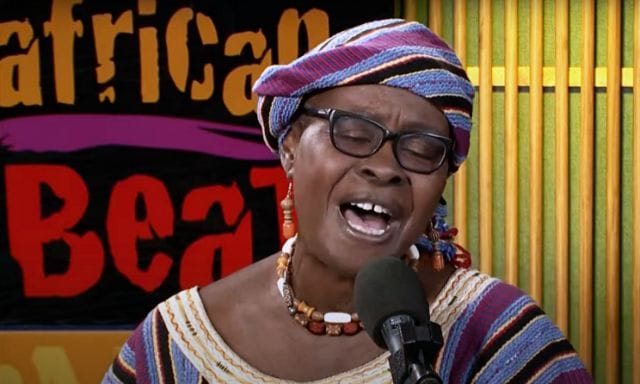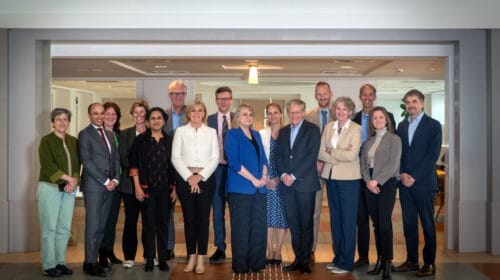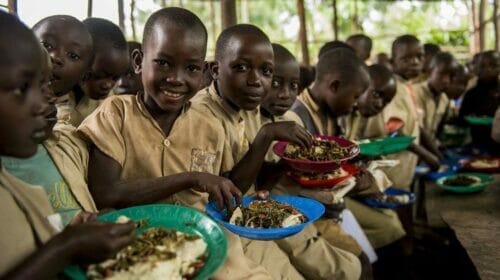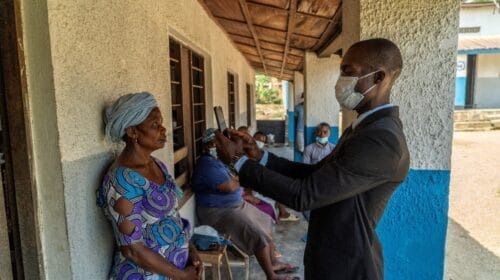Women in the Liberian music industry | Music In Africa – Music In Africa

Early pioneers
After about 10 years of sway over the industry by men, female musicians like Fatu Gayflor, Yatta Zoe and Miatta Fahnbulleh emerged in the 1970s to establish a strong female presence in Liberian music. These women’s breakthrough stories came against the backdrop of restrictive cultural barriers and social stigmas that prevented them from pursuing music as a professional career.
In his PhD dissertation titled ‘Cultural Colonialism and the Copyright Phenomenon in the Emerging Liberian Popular Music Industry: 1970-85’, Dr Timothy Nevin explains that female musicians were routinely stigmatised and commonly referred to as ‘grona girls’. The term grona boy, according to Nevin, quoting linguist John Singler, refers to a boy who has grown up in the streets, while grona girl, when applied to women, is usually thought to connote promiscuity, licentiousness or immorality.[1]
This situation was one of the reasons that led Miatta Fahnbulleh’s father, H Boimah Fahnbulleh Sr, a politician and diplomat, to disown her after she rejected his request not to pursue music as a professional career. The singer’s father even denied her the chance to participate in a singing competition she had auditioned for, although she still managed to claim second place after being judged on a self-tape.[2]
[embedded content]
After a disappointing career in the US, Fahnbulleh returned to Liberia in 1974 and quickly became a superstar. She attained the distinction of being the first Liberian female singer to perform solo at a presidential inauguration and at a Noble Peace prize ceremony.
Following Miatta Fahanbulleh is the late Yatta Zoe, the ‘Queen of Liberian Folk’, whose music was widely loved by Liberians, regardless of their age or religion. ‘Ma Zoe’, as she was affectionately called, became known for the hit songs ‘You Took My Lappa’, ‘All the Pocket Pickers‘ and ‘Young Girls Stop Drinking’.
According to Yatta Zoe, the early days of the Liberian music scene were characterised by a lack of respect for artists, especially female musicians. However, despite these challenging circumstances, at the peak of her music career, she toured Africa, Europe and North America where she befriended renowned musicians like the late Nigerian Afrobeat pioneer Fela Kuti and South Africa’s Miriam Makeba.[3]
A prominent Liberian female singer in the 1980s was Princess Fatu Gayflor, who performed at major music venues and festivals around the world. Born in Lofa County, Gayflor, who was nicknamed ‘The Golden voice of Liberia’, became obsessed with music at a young age and learnt to play the sekere, a local musical instrument of the Sande society.[4]
[embedded content]
In 1978, at the age of 12, she was enlisted as a member of the Liberia National Cultural Troupe, where she honed her craft as a singer and went on to lead the group at the 1984 Louisiana World Exposition in New Orleans, US. As one of Liberia’s most successful female musicians, Gayflor has released three acclaimed albums, which continue to make an impact to this day.
The new generation
At the end Liberia’s 14 years of civil war, which hurt the music careers of the aforementioned artists, in 2003, a new generation of female musicians began to emerge. This new batch of artists included Tokay Tomah, Kanvee Adams, Queen V, Peaches and Sweetz, who laid the foundations for other female musicians in the country, such as Lady Murphy, Lady Skeet, Angie Tonton and J Glo, to follow.
The late Tokay Tomah, who died in 2007, became popular for the hit songs ‘Chay Polo’ and ‘Open the Door’. Her career lasted more than a decade and saw her release six studio albums. Both of the above-mentioned songs, upon their release in early 2000, maintained a connection to traditional Liberian music amid emerging genres such as hipco.
[embedded content]
As a member of the National Culture Troupe of Liberia at the begining of her career, Tokay Tomah toured Europe, the US and several African countries during the 1980s while serving as a backing vocalist for well-known artists like Fatu Gayflor and Zaye Tete.
Queen V, the self-styled ‘Goddess of Hipco‘, became the first female artist in the history of Liberian music to record a rap single, ‘Far Way to Go‘, when opportunities for women in the hip hop scene were scarce. Hipco is Liberia’s version of rap music, combining hip hop, R&B and traditional rhymes in local pidgin.[5]
[embedded content]
Queen V is widely recognised for her unique lyrical content and originality, which has helped define the sound of hipco music in the country. Since her debut in 2006, she has gone on to release more than 10 singles and several collaborative hits. In 2014, the MC became the first female rapper to win the Liberia Entertainment Awards’ coveted Song of the Year category for the hit ‘Jue You Bad’.[6]
Another prominent female artist is Kanvee Adams, who has successfully exported Liberian gospel music beyond the country’s borders. She is also the first Liberian gospel artist to be nominated at the prestigious Kora Awards.
Female representation in the Liberian music industry
Despite these success stories, the music industry in Liberia remains male-dominated. Of all the music that is aired in Liberia, only 1% is by a female artist.[6]
Musician J-Glo comments: “The playing field is not level. If you look at two to three years back, there were lots of women in the industry, but the increase in gender inequality has made things difficult for us. Now they [men] have achieved this by making us remain in their shadows. They think that we belong to the home and should not compete with them now. They stereotype us every day, and this is ridiculous.”[7]
[embedded content]
The gender inequality gap is even more disturbing when it comes to women occupying leadership positions in the music industry. Despite women being strong consumers of music in Liberia, they hold just 0.01% of senior leadership roles.
Echoing J-Glo’s views, Angie Tonton, an international Liberian artist, says: “When you look at the gender breakdown for more technical roles such as sound engineering and music production, the gap becomes even wider because of the hostile environment created by men.”[8]
When it comes to being remunerated for performances, the gap widens further, as female artists earn less than their male counterparts. This situation is compounded by the fact that female artists are less likely to be interviewed or profiled by media outlets like newspapers, magazines, radio and TV.
Resources and citations:
[1] Nevin, TD. Politics And Popular Culture: The Renaissance In Liberian Music, 1970-89. University of Florida, 2010: https://ufdcimages.uflib.ufl.edu/UF/E0/04/23/31/00001/nevin_t.pdf
[2] Hamilton, A. “Mtta Fahanbulleh Biography” on All Music. Last accessed: https://www.allmusic.com/artist/miatta-fahnbulleh-mn0000382496
[3] Tapson, B. “’Let’s Be Liberians And Appreciate Our Music’ – Yatta Zoe, Mother of Folk Music Urges” (2004) from Liberian Forum: http://www.liberianforum.com/zoe.htm
[4] Philadelphia Folklore Project: “Fatu Gayflor”. Last accessed: http://www.folkloreproject.org/artists/fatu-gayflor
[5] Bropleh, T. “Return of the Queen V” in the Liberian Observer, 2016: https://www.liberianobserver.com/lib-life/return-of-the-queen-v/
[6] Dopoe, R. “The Gender Bias is True” in the Liberian Observer (2018): https://www.liberianobserver.com/lib-life/the-gender-bias-is-true/
[7] https://www.wikiwand.com/en/Liberian_Entertainment_Awards
[8] Dopoe, R. “J. Glo, Angie Tonton Complain of Gender Inequality in the Liberian Music Industry” in the Liberian Observer, 2017: https://www.liberianobserver.com/news/j-glo-angie-tonton-complain-of-gender-inequality-in-the-liberian-music-industry/
Disclaimer: Music In Africa’s Overviews provide broad information about the music scenes in African countries. Music In Africa understands that the information in some of these texts could become outdated with time. If you would like to provide updated information or corrections to any of our Overview texts, please contact us at info@musicinafrica.net.
Editing by David Cornwell




